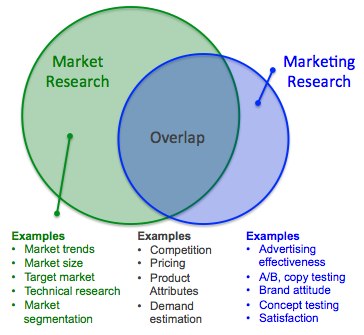Starting A Business Doesn't Have To Be Scary

How to getting started with your business?
Last time, we covered how to de-risk your business by talking with potential users of your product prior to actually developing it.
We talk to entrepreneurs all day every day, and we understand that it is a topic which brings up a lot of FUD: fear, uncertainty, and doubt. You might be at the point of deciding whether to start something or not. We want you to be successful, whatever successful means to you, so let’s talk through some of the common bits of FUD we hear.
I don’t have a unique and original idea.
No worries! Most businesses are neither unique nor original. Google wasn’t the first search engine. Facebook wasn’t the first social network. Microsoft didn’t write the first operating system, the first office productivity suite, or even the first Altair Basic compiler (their original product).
People who are spiritually aligned with entrepreneurship often place excessive importance on the idea because the idea feels like the vast majority of the work. The idea is actually an infinitesimally small part of the work.
You will spend almost all of your time building your solution and convincing people to use it. It is highly likely that material parts of “the idea” will change over time as you get more familiar with the problem domain and how your users perceive their needs.
I don’t know anything about finance or management or whatever they teach MBAs.
No worries! The two core tasks for early-stage entrepreneurs are building things and telling people about them. Everything else can be learned as you go. This includes bookkeeping, accounting, raising investment, etc. We’ve written guides to give you a bit of a background on some of these topics, and always want to be as helpful as we can on this.
I’m not sure if I can afford to run a company.
Companies are a lot like puppies: they’re a commitment. You probably should not attempt to run a company if your personal financial situation is on the razor’s edge. That said, they’re less expensive to run than they’ve ever been (yay technology) and surprisingly within the reach of regular people.
It’s impossible to predict how much money a startup will cost without knowing lots of specifics about it, but just as a ballpark figure, you should expect to spend low single-digit thousand dollars in your first 12 months on the mechanics of running your company (incorporation, professional advice for taxes, mandatory fees, etc).
This is in addition to whatever your personal burn rate might be.
I’m worried about what my day job will think.
Many businesses have started in founders’ nights-and-weekends, including nights-and-weekends after working at a more traditional job. Some folks assume that their day jobs will oppose them spending their free time on working on a new product. That isn’t a crazy worry, and it may depend on your employment agreements. You may also want to ask a legal advisor on what the law is in your particular jurisdiction; in some places, it is not possible for a company to regulate what employees do on their own time with their own materials, even if they have anti-moonlighting or anti-competition provisions in their contract.
You can also often convince your day job to give you permission to engage in activities after work, by pitching it as being in your mutual interest. For example, in the software industry, many employees work on open source software out of personal interest. As the industry becomes increasingly dependent on open source software, more employers are becoming OK with employees contributing in their free time or, in some cases, as a formal part of their employment. Employees have successfully argued to their employers that working on OSS allows them to increase their skill levels and stay abreast of new technology at no additional cost to the company. A similar argument might help you convince your employer that a nights-and-weekends project is in their interest. If you plan on doing this, talk to your employer first—carveouts for projects from your employment agreements are easiest to manage when they are clear and negotiated in advance.
Worth noting: you should avoid working on personal projects during your work hours and using any employer resources (including e.g. your laptop) or employer IP (such as code or customer lists) in your personal project. These are all incredibly high risk activities; your lawyer can tell you why in detail.
I don’t know anyone doing this.
Entrepreneurship can be lonely, particularly if it is not a common activity in your social circle. Luckily, the internet exists, and it is increasingly allowing birds-of-a-feather to find each other. Your interest in doing something new and exciting is shared by many, many folks worldwide, and you can plausibly find your tribe.
Interestingly, there are many communities online which are interested in entrepreneurship, and it is probably the case that not all of them are good fits for your aspirations and values. You might have to do a bit of searching or get a recommendation from someone whose business/life looks like the one you want to build.
Entrepreneurs often love helping each other. If you have an entrepreneur you admire, consider asking them where their favorite online watering holes are and where people like themselves gather. (This is particularly effective if the entrepreneur you admire is not generally inundated with email. As a gross exaggeration, entrepreneurs who appear on magazine covers often get a lot of fan mail from folks who are not well-positioned to start companies but appear to have an emotional response to stardom. Every other entrepreneur in the world receives far less fan mail, and many would be happy to know someone cared about their opinion.)
What can you work on today?
If you’re not already taking concrete steps on creating a business, ask yourself why that is. Write down a list of your worries. Then, write down a list of concrete things which need to happen for you to be comfortable starting your business.
We’re happy to talk through these things—write us any time. We’ll be back in a few days with advice on how to pitch your idea to customers, investors, and others.
Regards,
The GoRiseMe Team!
www.GoRiseMe.com
TRIVIA
J-B Say, a French Economist at first coined the word "Entrepreneur" around 1800!
-

Startup
Virtual Assistants 365
-

-

-

-

Inspiration
উদ্যোক্তা ও ব্র্যান্ডিং
-

Innovation
';
-

Innovation
Starting A Business Doesn't Have To Be Scary
-

Innovation
How 2 words can change the world?
-

Innovation
Why Market Research
-

Innovation
Market and Social Research






